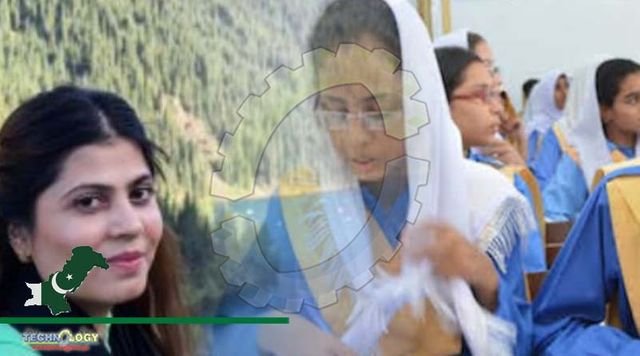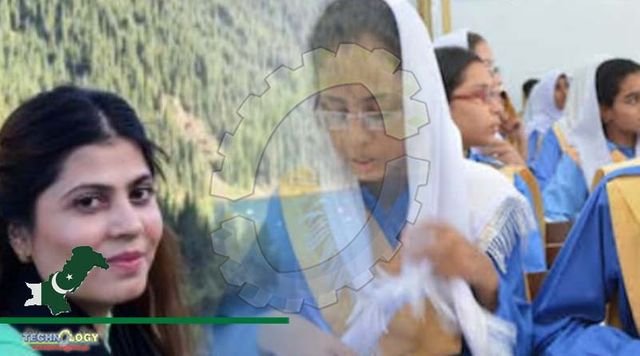petroleum engineers fuel the world quite literally and as a female in a traditionally male-dominated area, Mariam Shakeel is a testament that petroleum engineering can be a viable career pathway for women.

Her native Pakistan is home to vast oil and gas reserves, sparking her interest in pursuing a career in petroleum engineering to serve her country and the industry better. She is currently working on bolstering her knowledge and expertise in oil recovery. Shakeel knew there was no better place to do so than in oil-rich Kazakhstan.
After five years of work experience as an engineer under her belt, the Pakistani decided to pursue her master’s at Nazarbayev University’s School of Mining and Geosciences (NU SMG). The experience was so great that she decided to pursue her PhD at the same university. Shakeel hopes that her research will contribute to efforts to recover additional oil from depleted fields.
We caught up with the 30-year-old to learn more about her petroleum engineering studies, her PhD journey in Kazakhstan, as well as her plans after graduating. I am from Lahore, Pakistan. In 2014, I graduated with a Bachelor of Science in Petroleum Engineering from the University of Engineering and Technology in Lahore, Pakistan, and I was awarded gold medals for my achievement. My first job was as a Production Engineer in a service company, and then I moved on to a Reservoir Engineer position in another Energy and Petroleum (E&P) company. In these roles, I was responsible for various tasks, including reservoir simulation, production monitoring and optimisation, reserves estimation and well testing.
After acquiring five years of industry experience, I aimed to pursue a graduate programme to further polish my skills and knowledge in my areas of interest, and I got admitted to NU in 2019. I completed my MSc. Petroleum Engineering with honours and distinction from NU SMG in Kazakhstan in 2021. Currently, I am an active PhD student and working as a Research Assistant in the Petroleum Engineering Department at NU. I was always aware of energy crises while growing up in Pakistan. Pakistan has huge reserves of oil and gas, which we can extract using cutting-edge technology and optimised facilities. With these goals in mind, I decided to pursue a career in petroleum engineering to serve my country and the petroleum industry better.
I believe that obtaining an education in a country other than one’s own is education itself. Living in a setting with top-notch research facilities and people who have similar aims and aspirations can be an exciting experience in one’s academic life. It can be of significant value in one’s professional career. The pursuit of knowledge never stops. This is notably true regarding scientific research and technological development. Learning new technologies in nations with highly developed technological infrastructure can ensure that the quest for information will never end.The country of Kazakhstan has an abundance of oil and gas deposits. My decision to attend Nazarbayev University — Kazakhstan’s most prestigious educational institution — was based primarily on the practical implications of my education. NU emphasises the “application of theory” and not the “theory”. Students are encouraged to develop their practical expertise. I have been at NU for over two years, and I am pleased with the way the faculty members teach and guide us, the lab facilities, and the in-time assistance and guidance received from the faculty. I enjoy my time at NU SMG, the serene environment at the school, the excellent health facilities on campus, and the fact that I have been able to get in touch with loving and helpful Kazakhstani friends who share many cultural similarities with Pakistan.
I chose to pursue my doctoral studies at NU SMG because of its highly qualified international faculty, its research environment with state-of-the-art labs, its peaceful living environment both on campus and in Nur-Sultan and the possibility of getting field experience in oil and gas sites in Kazakhstan for real data analysis. The university collaborates with the oil and gas industry, which is advantageous in working with real-time data.My favourite course is Advanced Enhanced Oil Recovery because it is directly related to my research, and I learned a lot about innovative and emerging oil recovery techniques and process optimisation procedures. This course has taken my understanding of oil recovery processes to the next level.
With the presentation of innovative techniques and practical applications, I received full support from the professors in every possible way.Low-salinity water injection is one of the recent techniques for improving oil recovery in sandstones. Wettability alteration, electric double layer expansion, fines migration, flow diversions, system pH changes, the osmosis process, and mineral dissolution are the most common mechanisms involved in sandstone low-salinity water injection. The best sources for identifying and interpreting the dominant mechanisms involved are core flooding experiments and simulation models.
Living in Kazakhstan and pursuing my education here has been an incredible experience. The month of September 2019 found me in Kazakhstan. The first two to three months were difficult because I was transitioning and relocating from my home country to a new environment, experiencing new cuisine alternatives, and dealing with a hard winter that was nevertheless manageable. I overcame these problems by establishing contacts with locals and adjusting to a new environment. As a result, I have grown to enjoy the cuisine of Kazakhstan.
Kazakhstan has beautiful scenery and landscapes, and the summertime here is my favourite time of year. I went to some wonderful spots close to Nur-Sultan, such as Burabay, Shchuchinsk, and Kokshetau during the previous year’s summer, and I truly appreciated the landscapes and beauty all around. I also travelled to Almaty — Kazakhstan’s previous capital — known for its stunning landscapes. I took advantage of my proximity to the mountains by exploring the surrounding area, including the canyon, Shymbulak, Kok Tobe and Kolsay Lakes.
The actual cultures of Pakistan and Kazakhstan have some similarities, so I did not go through any sort of culture shock when I came here. For instance, there are similar women’s clothing, scarf, and similar food dishes like pilavı, Samsa, naan, sherpa, chai, etc. We also have some similar words in the Urdu and Kazakh languages.
If overseas female students wish to pursue STEM education, I would urge them to first set their goals and work hard to attain them in the best possible way. STEM education equips students with skills that make them more employable and prepares them to fulfil current labour demands. It includes a wide range of experiences and abilities. Each STEM component contributes significantly to a well-rounded education. Science provides students with a thorough awareness of the world around them.
To achieve their future ambitions, I strongly encourage female students from all around the world to come to NU and join the global research community. I want to say that Nazarbayev University has prepared the way for me to achieve my objectives. As an international student, I have received far more than I expected. I express my gratitude to the administration of SMG and NU for offering such wonderful possibilities and facilities to overseas students.
I am working hard to earn a distinction in my PhD with impact factor research articles. After that, I intend to pursue a post-doctoral position to further my research skills. I also want to work as a faculty or researcher at NU or anywhere in the world to serve academia or industry and gain international experience. After gaining international experience, I would be able to best serve my country and work on my plans.
Source: This news is originally published by studyinternational
